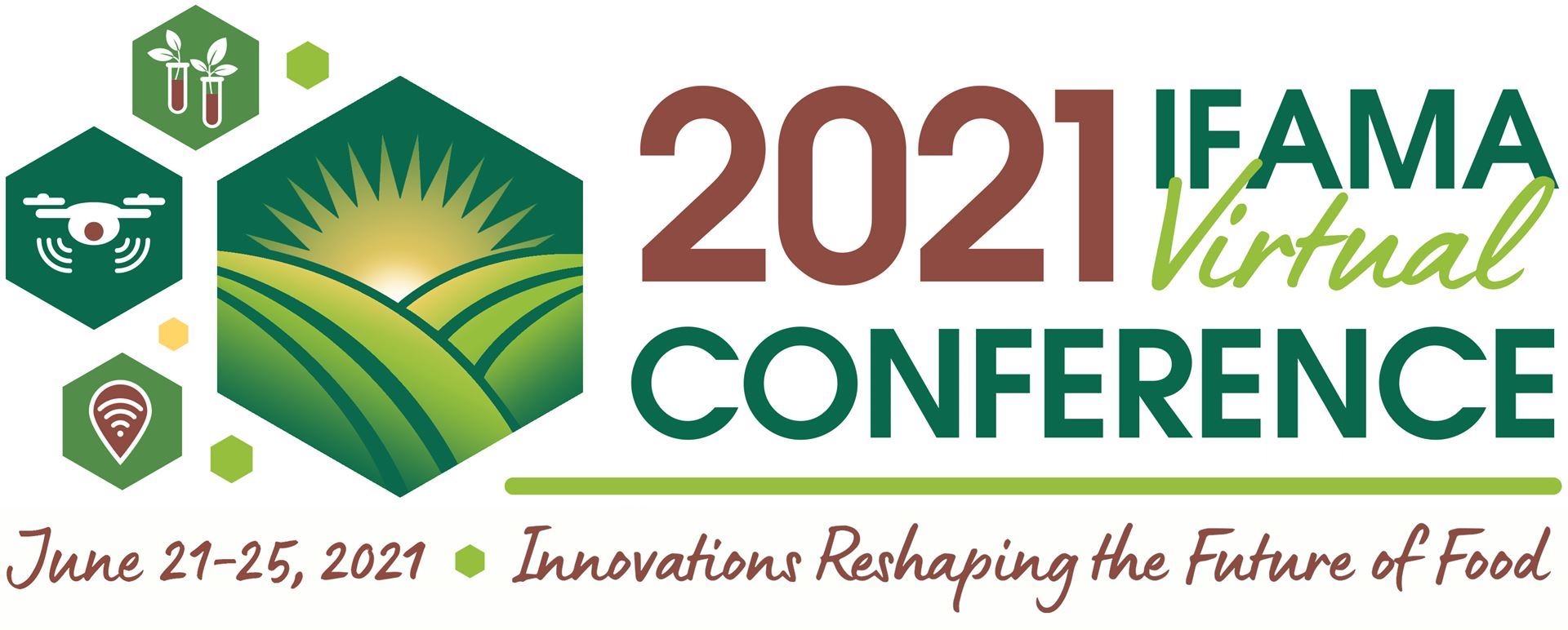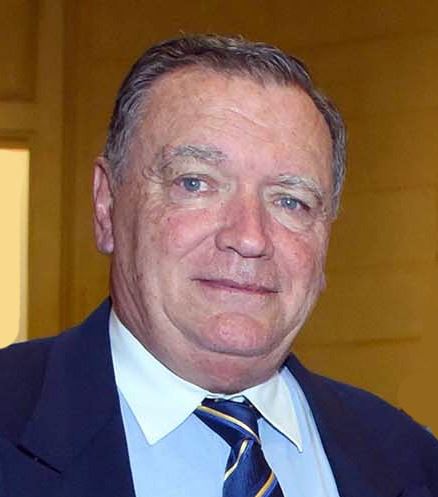|
|
Hello and Welcome to IFAMA 2021 —Hector Laurence, IFAMA President IFAMA is a vibrant association that attracts professionals from across a number of disciplines who are dedicated to the common goal of improving the health and vitality of the global food system. Our members include professionals from industry, NGOs, government agencies, policymaking institutions, faculty from leading universities—and students. In 2021, we will be offering the program virtually. This livestreamed event will feature all the components of IFAMA’s in-person conferences:
The conference will occur over five days in three different time zones, making it convenient for presenters and participants to attend regional programing with unlimited on-demand access to presentations from the entire global program.
OVERVIEW OF FORUM DISCUSSIONS Innovations Reshaping the Future of Food will present the latest initiatives that are currently reshaping the future of food. Join us as we convene leading thought leaders to discuss: TOPIC 1: CAN THE FARM-TO-FORK STRATEGY HELP CREATE A FOOD SYSTEM RESET? The Farm-to-Fork Strategy, launched in 2020, is at the heart of the European Green Deal and aims to make Agrifood systems fair, healthy, and environmentally friendly. In this session we discuss the hurdles ahead and the innovative solutions needed to develop circular bio-based economy, improve nutrient use efficiency, biodiversity, and animal welfare, while reducing greenhouse gas emissions. What are opportunities and challenges for Agrifood businesses? What are the key drivers needed to make these changes in the EU and Africa? How will this EU Farm-to-Fork initiative affect business model innovation and future trade regulations? TOPIC 2: NEW INVESTORS IN AGRIFOOD SYSTEMS As the AgriFood sector matures, non-traditional investors are entering the market with new financial sophistication as they seek to capitalize on the application of new technologies in food production. This session examines disruptive innovations in AgTech—production systems, new foods, and data platforms that allow for faster and better decision making. What are the implications for the traditional industry players? Will small farmers survive? What are the implications for food security and addressing climate change in Europe and Africa? TOPIC 3: FARMING IN THE FUTURE The farming sector is currently undergoing radical disruptions that will continue reshaping the future of food. Digitalization, new technologies, government policies, and climate change are poised to disrupt traditional business models. What are the keys to surviving and thriving? This practical session will showcase several examples of digital tools and disruptive technologies in Africa and Europe that are benefiting stakeholders across the food and agricultural value chain. Join us as we unpack investments in food and agricultural value chains. TOPIC 4: I’ll LEAVE THAT TO MY ACCOUNTANT—IMPROVING THE PEFORMANCE OF NATURAL CAPITAL IN FARMING AND FOOD SYSTEMS The New Green Deal in the US and the European Green Deal have drawn attention to the increased urgency to address climate change as well as the substantial resistance by many industry groups. Food production is one of the leading contributors to greenhouse gas emissions and recent efforts have focused on drastically decreasing the negative environmental impacts of food production. In this session we will learn about FAO's approach to addressing climate change which focuses on maintaining yields, country-driven strategies, and protecting vulnerable populations. TOPIC 7: THE FUTURE OF PROTEIN: IS THIS BEEF'S KODAK MOMENT? The beef industry is having its Kodak moment. New technology, including plant-based and biosynthetic-produced “meat”, apparently offer alternatives that are more attractive to consumers, retailers, policymakers, and investors, threatening the economics of the $330 billion global market. What comes next? To answer the question of what and who, we introduce a framework based on underlying forces and ask industry incumbents/leaders and fast-growing entrants to share their vision of the future. TOPIC 8: IS LATIN AMERICA THE NEXT AGTECH HOTSPOT? Latin America is expected to play a leading role in sustainable production of food in 2050. One way to do so is to attract and promote the development of start-ups linked to agriculture to create a vibrant AgTech sector. This “ecosystem strategy” could accelerate the digital transformation of agriculture as it has in St. Louis and Silicon Valley/Salinas in the US and Israel. What can we learn from these successful AgTech startup regions? Can such an ecosystem be built in Latin America? In this session we will talk with key actors from the St. Louis and Silicon Valley/Salinas ecosystems and some of the leading players in AgTech ecosystem development in Latin America. TOPIC 9: EDUCATION & TALENT: THE VIEW FROM THE BOARD ROOM AND CLASSROOM Competition for top talent will intensify as the pressure to innovate and improve performance continues to grow and the talent pool shrinks. Industry leaders will discuss strategies for recruiting, developing, and retaining the talent necessary to be successful. Visionary educators will present innovative approaches to preparing students who are competent, think strategically, and exhibit sound leadership. | "People Feed the World" AT A GLANCE MONDAY | 21 JUNE SYMPOSIUM ACADEMIC KICK-OFF Symposium Research Paper Presentations TUESDAY | 22 JUNE FORUM DAY 1 — Oceania | Asia WEDNESDAY | 23 JUNE FORUM DAY 2 — Europe | Africa THURSDAY | 24 JUNE FORUM DAY 3 — The Americas CONFERENCE VIDEOS ARE AVAILABLE |
THANKS TO OUR 2021 CONFERENCE SPONSORS |
|



